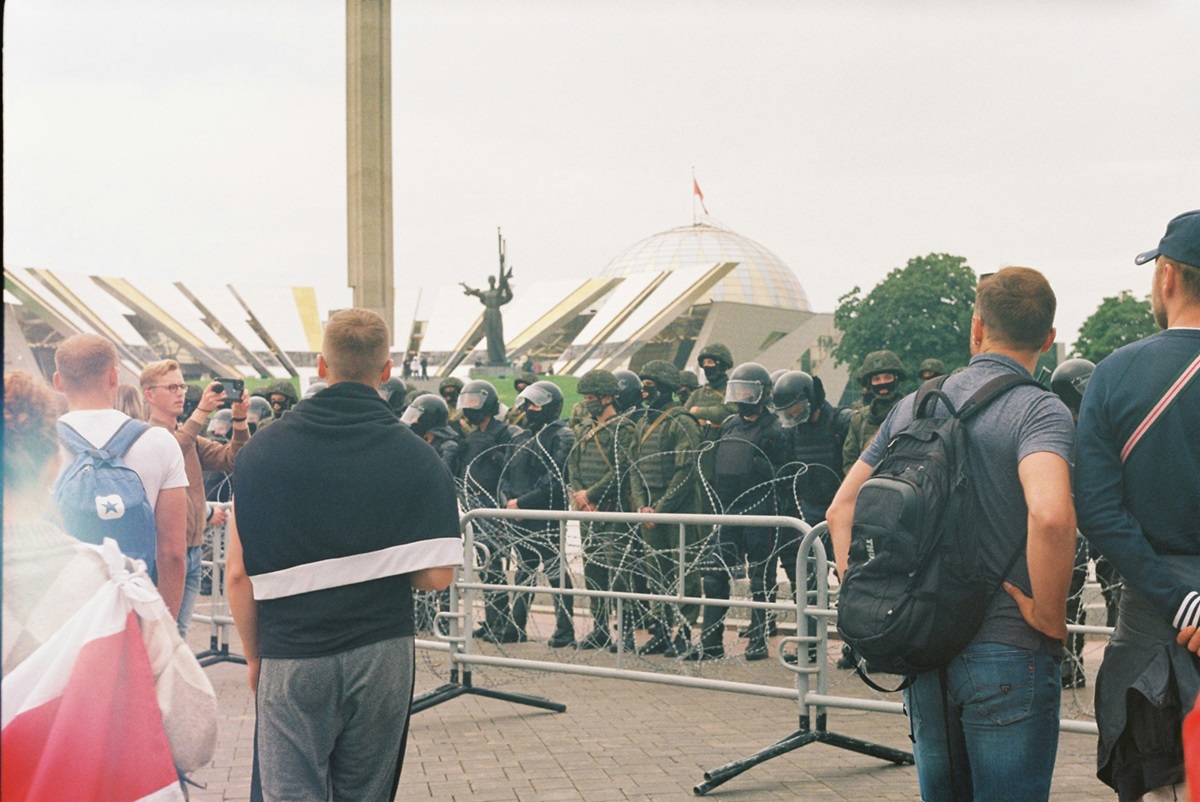Rucksacks (and prison) for Belarusians
There are over 8,000 people imprisoned for political reasons and over 300,000 who have been forced to leave the country for the same reasons in a land of just 10 million inhabitants. And ever since the Lukasenko regime forced citizens abroad to return to their homeland to reissue their passports, the number of stateless Belarusians around Europe and the world has multiplied exponentially.
Minsk (AsiaNews) - The life of Belarusians today is characterized by two terms, rjukzak, the rucksack for carrying one's things around, and kešer, the overalls to wear in prison. As documented in an article by Kommersant, there are over 8 thousand Belarusians detained for political reasons, and over 300 thousand forced to leave the country for the same reasons.
The author of the article, Yurij Komissarov, also calls them "Nansen's heirs", referring to the Norwegian explorer and politician Fridtjof Nansen, Nobel Peace Prize winner in 1922 for his activities as High Commissioner for Refugees of the Society of Nations and inventor of the “Nansen passport” to protect stateless people.
Since Alexander Lukashenko's dictatorial regime forced citizens abroad to return home to get their passports re-issued, the number of stateless Belarusians around Europe and the world has multiplied exponentially, as happened with dissidents of the Soviet Union expelled without documents.
Even the head of the Citizenship and Migration Department of the Foreign Ministry in Minsk, Aleksej Begun, recently admitted that between 2021 and 2022 over 200 thousand citizens left the country.
If we look beyond the official data, according to various experts, the number of emigrants varies from 300 to 500 thousand people, for a population of less than 10 million inhabitants: more than 5%, compared to the one and a half million Russians out of 145, the relokanty fleeing war and mobilization, which concerns Belarus much less directly.
The repression that began after the protests against the president's re-election in 2020 were very harsh and impetuous, and many managed to avoid them by quickly abandoning their apartments with their backpacks on their shoulders, half an hour before the police broke down the front door without doing anything.
Water-tight ad hoc sentencing rules with particular sadism and ferocity were applied to all fugitives, such as the latest idea of renewing identity documents, whether expired or valid.
The properties and assets remaining in their homeland were confiscated, and only some managed to request political asylum in time in the countries of destination along the routes of stateless nomadism, obtaining at least refugee status with the Nansen passport.
The children of Belarusian nomads born abroad will not be able to obtain Belarusian citizenship and will be "refugees by birth", and the provisional documents do not allow those who obtain them to include any relatives, nor to entrust those remaining in their homeland with any delegation.
When special permits or any other certificate expires, one remains only illegal migrants, a condition increasingly reduced by the tightening of rules in Europe and America. Many Belarusians have simply refused to seek protection, in the hope of change at home, and opposition leaders such as Svetlana Tikhanovskaya, the opponent who would have won the 2020 elections if they had not been manipulated, are trying to offer documents of “ new Belarus” abroad.
In 2020, hope was still very much alive, and Poland had opened its borders to fleeing Belarusians, in the certainty that the dictatorial regime would collapse very soon. Putin's war instead protected his "brother" Lukashenko from any danger of internal revolt, effectively "friendly" invading Belarus as a necessary buffer for the "defense from Ukrainian Nazism" operation.
Many of them moved to Ukraine, only to then flee further away with the approach of Putin's tanks in 2022, beginning the epic of the nomadism of the "Belarusian Bedouins", as they themselves often define themselves.
Many went to Montenegro, one of the traditionally most welcoming countries for Eastern Slavs, but which does not issue any type of document to foreigners: what attracts fixers, while blocking refugees like the Kosovars before, to which today are added the Belarusians.
One remedy has been found in Georgia: the residence visa is renewed every year, and you have to take a bus trip from Batumi to Turkey and back in order to stay in the country. However, that remains the fate of Belarusians, linked to the usual three daily factors: the backpack, the station, the unknown.
11/08/2017 20:05
16/12/2021 10:46
24/11/2020 10:55
05/10/2021 11:46







.png)










